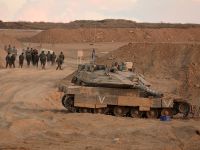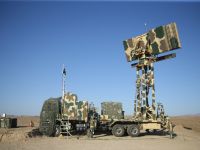"Armed forces have no intention to prolong their rule," he told a news conference ahead of the first anniversary of the coup that ousted the elected government of prime minister Nawaz Sharif on October 12, 1999.
"We will return to our place exactly after three years in accordance with the deadline given by the Supreme Court" in May, Musharraf said.
Musharraf said he had no plans to form a political party. "I can give a surety bond that I will not form a political party. All such talk is nonsense," he said.
"We will hand over power to elected people and we have an elaborate plan to achieve this."
After district-level elections to be held in phases starting in December and ending by July next year, the military government will hold provincial and national elections, he said.
Musharraf additionally gave an overview of his government's performance in its first year, during which it faced the tough tasks of reviving the economy and eliminating corruption.
Pakistan would continue to exercise "maximum restraint" in Kashmir despite Indian "provocations," he added.
Musharraf rejected suggestions that Pakistan's economic difficulties were the result of its Kashmir policy, calling them "absolute fallacy."
Pakistan gives political and diplomatic support to the 11-year-old Muslim separatist drive in the Indian zone of Kashmir. Islamabad controls the northern third of the disputed Himalayan territory.
The quarrel over Kashmir has caused two of the three wars between the South Asian rivals, which both carried out tit-for-tar nuclear tests in May 1998.
"We are showing maximum restraint despite India's continuous aggressive actions along the Line of Control," the de facto border in Kashmir, he said.
Musharraf, defending the performance of his government, said he had done "a lot" in one year but that this was not adequately recognised.
He accused vested interests and unidentified external forces of creating a sense of despondency in the society.
"I will not go into details to describe the external forces, but I know they are trying to destabilise my government because it is putting the country on the path of progress," the general said.
He said the government's revenue collection had increased by 17 percent as a result of a drive to broaden the tax net and document the informal economy through a nationwide survey.
"We have been able to detect undeclared assets worth 113 billion rupees (around two billion dollars) and realise additional tax revenue of 11 billion rupees which is a record achievement in Pakistan," he said.
The trade deficit had been reduced from 8.6 billion rupees to 7.5 billion rupees, he added. "We have been able to attract more than 700 million dollars investment in the oil and gas sector."
Pakistan's credit rating has improved and now "we are considered a stable economy," Musharraf said.
The world was also showing deep interest in the economic reforms, especially the exercise to document the informal economy. "If we succeed we will become a model country in the world."
Musharraf suspended the constitution and parliament after seizing power and in March banned political activities and demonstrations.
Despite the restrictions Sharif's Pakistan Muslim League (PML) plans to observe October 12 as a "black day" and his wife Kulsoom intends to lead a protest rally from Peshawar.
In April Sharif was sentenced to 14 years in prison on corruption charges. Earlier he had jail for life by an anti-terrorism court for trying to stop a plane carrying Musharraf landing at Karachi on the night of the coup – (AFP)
© 2000 Al Bawaba (www.albawaba.com)







